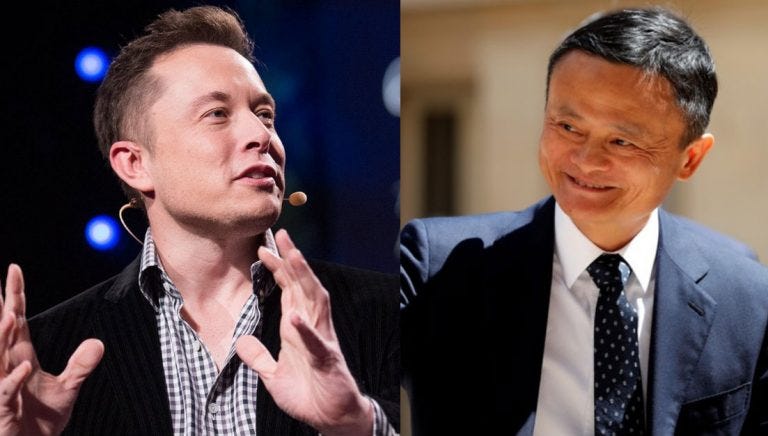Will artificial intelligence exceeds human intelligence, aka can we reach the technological…
Will artificial intelligence exceeds human intelligence, aka can we reach the technological singularity?!

I watched Elon Musk (SpaceX, Tesla, OpenAI, Neuralink) and Jack Ma’s (Alibaba) debate about the future of artificial intelligence a few weeks ago. If you missed it, now you can watch it here:
Ma thinks that AI will never reach the human level, but Elon’s opinion is that the human kind is only a “bootloader” of the AI, and the long term history of the human kind is the history of the AI. Jack Ma’s opinion is based on a simple fact: there is no living thing that built a more clever thing. This argument is totally pointless, but there is softer reasoning: the human brain is too complex to understand by the human brain. I think this second can be true, but I also think the future is about the human level AI as Elon said. To resolve this contradiction, let me write some words about neural networks and machine learning.
I think the above TED talk from Fei-Fei Li is one of the bests in the topic. She is talking about the machine vision, and how the problem tried to be solved by traditional algorithms. Traditional algorithms are unsuccessful in the field of machine vision. So, there is a task that is much simpler than the human level AI, but it is too complex for us. But we solved it! The key to the solution was neural networks. A neural network is a black box that has inputs and outputs and hundreds of thousands of adjustable potentiometer. Every state of these potentiometers results in a different algorithm in the box. So, this is a computer that can be programmed through these potentiometers. The magic is that we don’t have to adjust these potentiometers because these are adjusted by the training algorithm. We only have to give enough samples (inputs and expected outputs) and the training algorithm adapts the black box to these. So, a neural network is a computer that is programmed by the training algorithm based on the samples. These “neural programs” are too complex for us to understand, but they are working fine. So, yes, we can build things that are too complex to understand by the human brain, but that is working.
Ok, we’ve solved the problem of the human vision, and we can train complex systems that cannot be programmed, but is it enough to the human level AI? I think not! A neural network can read every book in the world, but it won't be self-conscious. The problem is not the knowledge of what can be learned, but the knowledge which is in our genes when we born. Our brain is pre-wired by billions of years of evolution. I think we have to copy this if we want to build human level AI. I don’t think that we will invent the human level AI from one day to the next. It will be a continuous transformation from humans to machines, like Kurzweil wrote in his book: The Singularity Is Near. Artificial Intelligence won’t be a new race, it will be only the new stage of human evolution. We will be AI!
I think brain-machine interfaces will be the next stage of the transformation. Brain-machine interfaces are a new field, where AI can help a lot because we have to integrate our machines with one of the most complex things in the world (the human brain). In the first round, AI will be the translator between the two systems, because neural networks can learn how can be translated images, sounds, etc. to brain stimuli and back. Brain-machine interfaces will open incredible new opportunities like full telepathic communication and fully immersive VR.
If you are interested in brain-machine interfaces, here is my older article about this topic: https://blog.usejournal.com/neuralink-openwater-darpa-n3-aka-how-far-is-the-full-immersive-matrix-style-virtual-reality-2f5576fa343c
Thanks to brain-machine interfaces, machines will have a more and more important part of our thinking and our personality. Machines will take over more and more tasks from our biological brain, and after a while, they will be able to simulate the whole human brain. The transformation will be continuous and maybe we may not even notice when our brain became digital. The biological component simply degrades and becomes meaningless. Maybe we will never understand how the human brain works, and we will never be able to build human level artificial intelligence. This is where Jack Ma is right. But I think the future of the human kind is AI. We, the human kind will be the human level AI, who think of the biological humans as a “bootloader” as Elon Musk told…
This is a short sci-fi about the topic: https://medium.com/@thebojda/one-minute-before-the-singularity-4edded3e9377